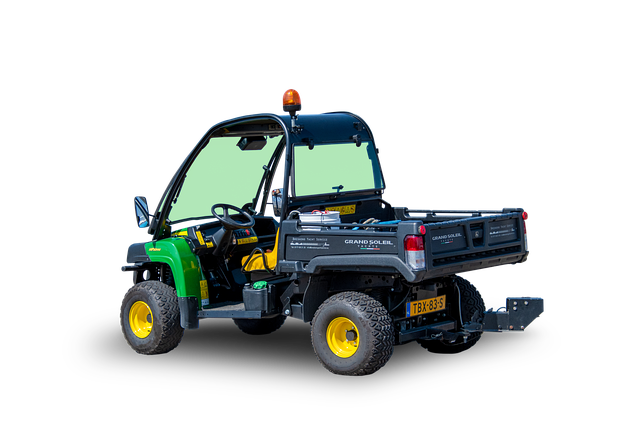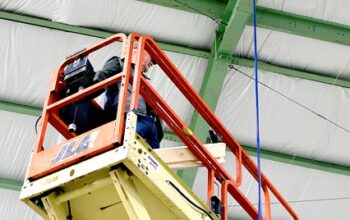Ontario’s strict regulations for utility trailers ensure safe roads and responsible ownership. This comprehensive guide navigates the essential aspects of owning and operating a utility trailer in the province, from legal requirements to safety measures. Whether you’re considering purchasing a utility trailer for sale or already own one, understanding these regulations is crucial for compliance and peace of mind. Explore registration, weight limits, insurance, and more to ensure your trailer journey runs smoothly.
- Understanding Ontario's Utility Trailer Laws
- Registration and Licensing Requirements
- Weight Limits and Load Securement
- Safety Features and Maintenance Checks
- Insurance Coverage for Utility Trailers
Understanding Ontario's Utility Trailer Laws
Ontario has specific laws and regulations in place to ensure the safe operation and registration of utility trailers for sale and use within the province. Understanding these laws is crucial for both buyers and owners, as they cover various aspects, including size, weight limits, lighting requirements, and safety features. These regulations are designed to maintain order on Ontario’s roads and protect all road users.
Knowing what falls under the definition of a utility trailer is essential. In Ontario, this category includes vehicles primarily used for carrying equipment or cargo, such as construction tools, farm machinery, or recreational gear. Owners must ensure their trailers meet the required safety standards, including proper lighting, brakes, and secure cargo protection, to remain compliant with the law.
Registration and Licensing Requirements
Before hitting the road with your new utility trailer, understanding Ontario’s registration and licensing requirements is crucial. Any utility trailer for sale in Ontario must be properly registered and licensed to ensure safe operation and comply with provincial laws. The process typically involves obtaining a Vehicle Registration Certificate from the Ministry of Transportation (MTO). This certificate confirms that your trailer meets safety standards and is legally authorized for use on public roads.
Additionally, you’ll need to secure a valid driver’s license and possibly an additional class or endorsement, depending on the trailer’s size and intended use. It’s important to check with the MTO for specific guidelines regarding utility trailers, as requirements may vary based on weight, dimensions, and purpose. This ensures not only legal compliance but also enhances your safety while driving a loaded trailer.
Weight Limits and Load Securement
Utility trailers, whether you’re looking for one for sale or planning to rent, must adhere to strict weight limits and load securement regulations in Ontario. These guidelines are in place to ensure safety on the road and prevent accidents caused by improperly secured or overladen trailers. The maximum gross vehicle weight rating (GVWR) of a trailer is a key factor; this number represents the combined weight of the trailer itself, any attached hitch, and the maximum load it can carry safely.
When loading your utility trailer, securement is paramount. Properly distribute the weight of your cargo across the trailer bed to maintain a balanced load. Use sturdy tie-down equipment like ratchet straps, chains, or rope to fasten your items securely, ensuring they don’t shift during transport. Remember, an unstable load can lead to hazardous driving conditions and potential damage to both your vehicle and the trailer.
Safety Features and Maintenance Checks
Utility trailers for sale in Ontario must adhere to stringent safety standards, ensuring a secure and enjoyable experience for all users. Before hitting the road, conduct thorough safety features checks, including inspecting brakes, lights, and couplers. Regular maintenance is paramount; keep an eye on tire pressure, bearing grease levels, and electrical connections. These precautions are not just regulatory requirements but also vital for preventing accidents and ensuring your utility trailer functions optimally.
Focus on critical components like the tongue weight, load capacity, and overall stability during each trip. Remember, a well-maintained utility trailer is not only safer but can also extend its lifespan. Always refer to Ontario’s guidelines for specific maintenance protocols tailored to different trailer types and uses.
Insurance Coverage for Utility Trailers
When it comes to insuring a utility trailer, buyers and owners in Ontario must understand that standard auto insurance policies do not cover these types of vehicles. Utility trailers for sale or already owned require specific coverage tailored to their unique risks and uses. This is because utility trailers often carry valuable equipment and supplies, which can be susceptible to damage, theft, or loss during transport.
Insurers in Ontario offer comprehensive insurance packages designed for utility trailers, ensuring that owners are protected against perils such as collision, uplifting, fire, vandalism, and natural disasters. These policies may also include liability coverage, which protects the owner from financial responsibility if their trailer causes damage or injury to others. Understanding the specific needs of utility trailers is essential when shopping for insurance, ensuring that your investment in these versatile vehicles is adequately secured.
When purchasing one of the many utility trailers for sale in Ontario, it’s crucial to familiarize yourself with the provincial regulations. By understanding the legal requirements covered in this comprehensive guide—from registration and weight limits to safety features and insurance—you’ll be well-equipped to navigate Ontario’s utility trailer laws, ensuring a smooth and secure experience for both you and your cargo.




